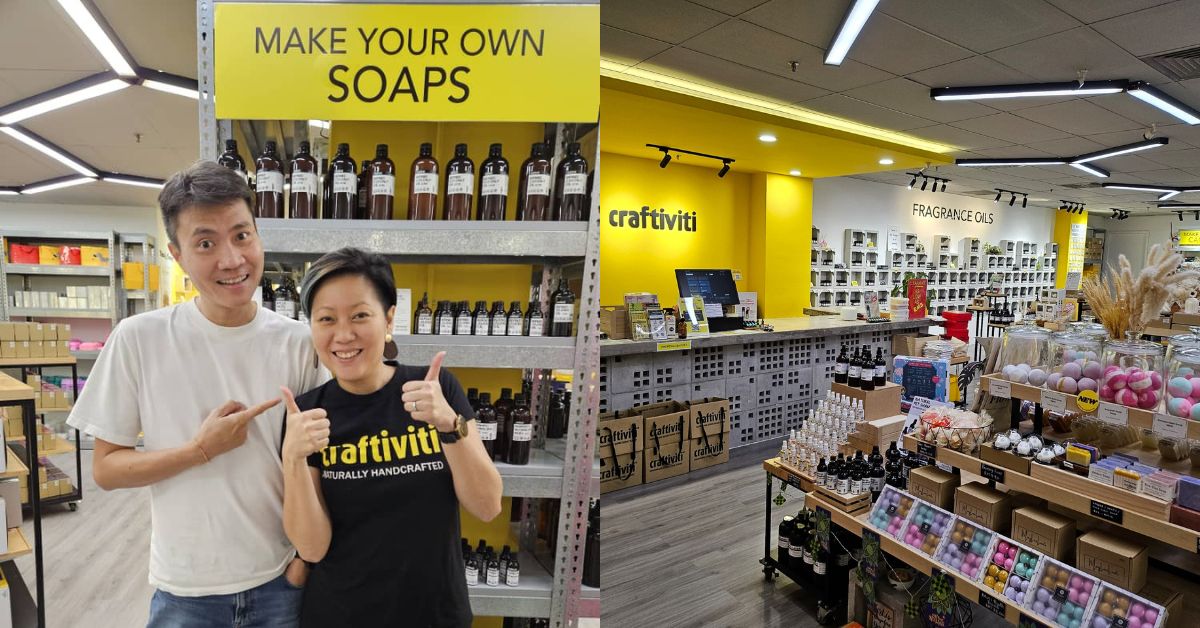When you think about what’s happened this year, what’s one thing you’d change? We’d all have different answers, but without a doubt: we all hope for a better 2021.
This year, limits were pushed and exceeded, and ideas and their execution were accelerated. A whole world of new things to look forward to has been opened up for Malaysia.
Wanting more insight from those in the startup community themselves, we reached out to the Entrepreneurs and Startups in Malaysia Facebook group to ask about their predictions for startup trends in 2021.
1. Livestream Shopping Will Be Expected From Every E-Commerce Player
Livestream shopping brings back the fun and interactivity for online retail experiences, and it’s something that Malaysia has experimented with the past few years.
Overseas, the trend is positively growing. China’s Taobao Live’s sessions have increased by 110% YoY since 2016. The platform even grew their number of merchants by 719% during the country’s lockdown from January to February 2020.
We have no doubt that local merchants will also be using the pandemic as an opportunity to jump on this trend.

One platform hosts mukbang livestreams to help merchants sell meals while another gives away wedding deals from vendors, for example. Even Lazada and Shopee have invested in their livestreaming features for SEA.
If you’re planning to do the same, you may want to target the Mandarin-speaking market in Malaysia, since they tend to be more impulsive with their spending, as we learnt from an entrepreneur in the business.
2. An Online Education Ecosystem That Can Tackle Virtual Exams

The shift to online schooling is increasing the demand for startups who can move the public school syllabus online and host virtual classes that bring elements of a physical classroom to the screen.
However, moving exams online still seems incomprehensible. COVID-19 has caused the cancellation of UPSR and PT3, while pushing back SPM and stressing out the students anticipating it.
So, a solution for supervised or unsupervised online exams presents an untapped market here. For this, we can take some pointers from Imperial College London’s online exams for medical students.
To curb cheating, test makers questioned students in a way where answers couldn’t be strung together by looking things up online. The order of questions was also randomised so students couldn’t help each other out.
However, it would be a while before Malaysian schools can apply this nationwide. Universities can adopt this first, as most students already own a personal laptop.
3. Less Dine-In Restaurants, More Cloud Kitchens For The Delivery Business Model

More F&B businesses will forgo a physical restaurant in favour of cloud kitchens as everyone is more open than ever to order their food from Grab, foodpanda, or even AirAsia Food.
These commissary kitchens are also known as ghost, shared, or central kitchens, but all serve the same purpose. It’s a place to cook food without a storefront and meant specifically for deliveries.
The model best works for businesses who don’t ever plan on launching a dine-in restaurant like Epic Food Hall, Chan Good Food, and Ghost Pizza.
Even the well-known F&B brand, KyoChon Malaysia has been doing their cooking in cloud kitchens to supply to their 22 restaurant chains.
Opening a new restaurant isn’t the best idea right now as it’s expensive and people may still be afraid to dine in. Cloud kitchens also have the advantage of pricing and rental flexibility, which means lower commitment.
Furthermore, there’s no need to renovate a physical space, pay delivery commissions or hire more staff to wait tables.
Names like Cookhouse and Kitchen Connect even provide other services like marketing and logistics in-house to help grow new F&B brands.
As more F&B owners begin realising this model’s value, we’ll be seeing more cloud kitchens emerge next year and existing ones expand their spaces to accommodate more brands.
4. Moving Past Coworking Into Co-Sharing For Various Industries

The concept of co-sharing is growing. Some have surfaced in the beauty and hairstyling industries, allowing solopreneurs to launch a business with low capital.
For the F&B sector, we have co-sharing studios to learn how to bake intricate cakes from an iPad, and for home cooks to start a business from a co-sharing kitchen.
Most co-sharing spaces offer training and the necessary equipment, as well as the chance to network.
Based on the types of businesses that are taking advantage of such concepts, I noticed that all of them share the same thing: everyone provides a tangible service or product.
Maybe next year we’ll see some co-sharing mechanical workshops, dental clinics, or even carpentry and art studios.
The possibilities seem endless, and we already have a co-farming startup giving smallholder farmers a ready-to-farm space and technology to kickstart their business.
This leads me to my next point about farming.
5. Younger Startups Will Look Into Innovating The Age-Old Agricultural Industry
Of course, farming has been around since the first Agricultural Revolution in 10,000 B.C. The difference now is the shift in consumer behaviour.
More people are willing to buy produce from smaller players and share their names on social media to show support.
Seeing the opportunity, young entrepreneurs are finding ways to innovate and tap into this industry for a wide variety of reasons.
For example, cutting out imports of not-so-fresh fruits from overseas or acting as a direct supplier to businesses and customers. People are even willing to embrace vegetable subscription boxes.

Because of the pandemic, we’ve also seen heartwarming collaborations between large e-commerce companies and rural farmers.
So, because consumer behaviours have changed, we expect to see more younger startups looking to make bucks off what has always been seen as an outdated, archaic industry.
6. Virtual Events Will Be Improved, And Hybrid Events Will Increase

Since the pandemic halted all physical events this year, Vulcan Post has been participating in virtual versions the past few months.
We’ve roamed the streets of a virtual food festival, looked at properties in a virtual expo, and attended an online conference with virtual networking.
We reached out to Pearly Lim who’s part of the team behind Tiger’s Street Food Virtual Festival, and she told Vulcan Post that their point was to create an experience as close to the real thing as they could.
Doing things virtually opens up endless possibilities, so you shouldn’t feel limited to what you can do physically. The most important thing is to keep it interactive, engaging, and fun for your attendees.
Pearly Lim, Marketing Manager, Tiger, HEINEKEN Malaysia
Having virtual avatars and spaces to move around in is exciting, yet many of these events still lack interactions between other attendees, making it seem rather “lonely”.
A live chat box would let users socialise with one another, which would increase the fun and elevate the social experience.
Virtual events are definitely here to stay, even when we move back to more normal circumstances. We’re expecting to see hybrid events, where portions of it can be done virtually, and the others physically.
Keeping an audience’s attention online isn’t easy, so more events will be looking to up their gamification and interactive features, even for the more formal and educational types. If you’ve got the skills for this, you’d be in luck.
- You can read more about Malaysian startups we’ve written on here.
Featured Image Credit: Figara11 / TCH Foodworks Coworking Kitchen









